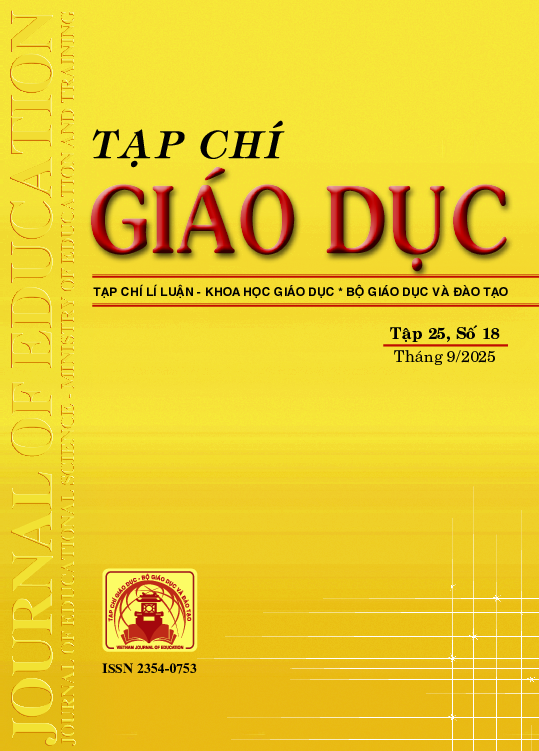Nhận thức, thái độ và hành vi ứng dụng trí tuệ nhân tạo trong đánh giá trực tuyến của giảng viên đại học: Phân tích thực tiễn từ Trường Đại học Mở Hà Nội (HOU) và các trường thuộc nhóm OU5
Tóm tắt
In education and training, AI is becoming a breakthrough tool, contributing to fundamental changes in the way of teaching and learning, opening up opportunities to personalize the learning process, supporting learners to develop their capacity flexibly, effectively and proactively. The study uses quantitative methods, surveying 52 lecturers at Hanoi Open University (HOU) and 150 lecturers from universities in the OU5 network (Malaysia, Thailand, Indonesia, Philippines) through convenient sampling. Data were processed and analyzed using descriptive statistics, group comparison (t-test, ANOVA), correlation and linear regression. The results show that lecturers have a positive perception of the potential of AI in improving efficiency and transparency in assessment; however, their actual application behavior is limited. In addition, there are significant differences by age, gender and job position in AI application behavior. The study's conclusions and recommendations emphasize the importance of developing multi-layered support policies, including personalized training, infrastructure investment, legal framework development, academic leadership promotion, and international cooperation to transform awareness into behavior in a sustainable manner.
Tài liệu tham khảo
Ajzen, I (1991). The theory of planned behavior. Organizational Behavior and Human Decision Processes, 50(2),
-211. https://doi.org/10.1016/0749-5978(91)90020-T
Davis, F. (1989). Perceived Usefulness, Perceived Ease of Use, and User Acceptance of Information Technology.
MIS Quarterly, 13(3),319-340. https://doi.org/10.2307/249008
Gefen, D., & Straub, D. W. (1997). Gender Differences in the Perception and Use of E-Mail: An Extension to the
Technology Acceptance Model. MIS Quarterly, 389-400.
Hồ Mạnh Tùng, Nguyễn Tô Việt Hà (2023). Công bằng trong giáo dục trước ảnh hưởng của trí tuệ nhân tạo. Tạp chí
Thông tin & Truyền thông, 11, 122-128.
Huang, L. (2023). Ethics of Artificial Intelligence inEducation: Student Privacy and Data Protection. Science Insights
Education Frontiers,16(2) 2577-2587. https://doi.org/10.15354/sief.23.re202
Nguyễn Phúc Quân (2023). Phát triển khung năng lực số cho giảng viên trong kỉ nguyên trí tuệ nhân tạo. Hội thảo Khoa
học Quốc gia phát triển năng lực giảng viên trong bối cảnh chuyển đổi số, Trường Đại học Tây Nguyên, tr 254-261.
Trương, H. (2023). ChatGPT và giáo dục: Tổng quan tình hình nghiên cứu trên thế giới và Việt Nam. EdArXiv.
https://doi.org/10.35542/osf.io/cnze6
UNESCO (2021). AI and education: Guidance for policy-makers. United Nations Educational, Scientific and
Cultural Organization.
Tải xuống
Đã Xuất bản
Cách trích dẫn
Số
Chuyên mục
Giấy phép

Tác phẩm này được cấp phép theo Ghi nhận tác giả của Creative Commons Giấy phép quốc tế 4.0 .












